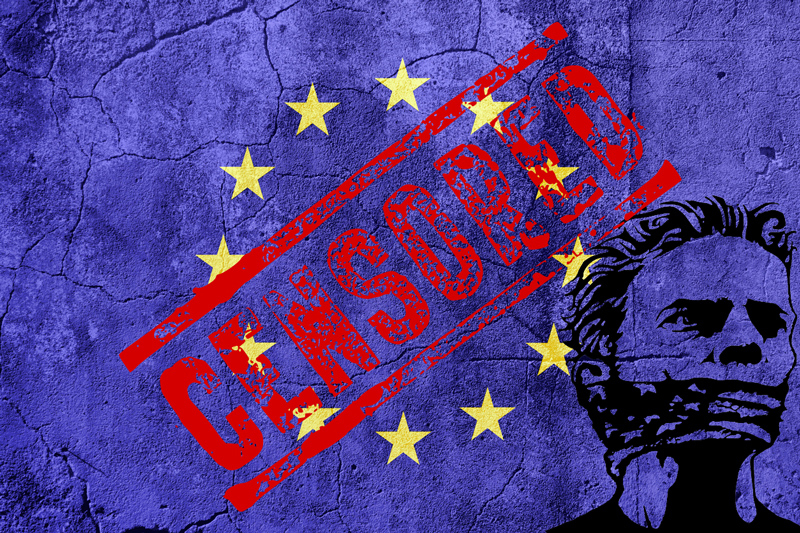They’re using Orwell’s epic book “1984” as a training manual…
EU: Going Full Orwell
- The problem is that this professedly noble initiative comes from an organization that has already for several years been censoring free speech in Europe.
- The handbook guidelines state that journalists should “Take care not to further stigmatize terms such as ‘Muslim’ or ‘Islam’ by associating them with particular acts… Don’t allow extremists’ claims about acting ‘in the name of Islam’ to stand unchallenged. Highlight… the diversity of Muslim communities… where it is necessary and newsworthy to report hateful comments against Muslims, mediate the information.” In other words, the guidelines ask journalists to disinform the public.
- This is the same European Commission that most recently expressed its disapproval of the withdrawal of Austria from the UN’s “Global Compact for Safe, Orderly and Regular Migration.” The Compact stipulates that media outlets that do not support the UN’s migration agenda will not be eligible for public funding. How is that for “fully respecting Europe’s fundamental principles of freedom of expression, a free press and pluralism”?

The EU has launched a comprehensive Action Plan against Disinformation. Its purpose, according to a recent press release from the European Commission, is apparently to “protect its democratic systems and public debates and in view of the 2019 European elections as well as a number of national and local elections that will be held in Member States by 2020”.
In June 2018, leaders of EU member states had met in the European Council and invited the European Commission “to present… an action plan by December 2018 with specific proposals for a coordinated EU response to the challenge of disinformation…” It is this action plan that the Commission presented to the public on December 5.
The Action Plan focuses on four areas:
- Improved detection of disinformation (the European Commission dedicated 5 million euros toward this project and seemingly expects Member states to contribute on a national level, as well).
- Coordinated Response — the EU institutions and Member States will set up a Rapid Alert System “to facilitate the sharing of data and assessments of disinformation campaigns”. The Rapid Alert System will be set up by March 2019 and “will be complemented by further strengthening relevant resources”.
- Online platforms and industry are called on to ensure “transparency of political advertising, stepping up efforts to close active fake accounts, labelling non-human interactions (messages spread automatically by ‘bots’) and cooperating with fact-checkers and academic researchers to detect disinformation campaigns and make fact-checked content more visible and widespread” in accordance with a previously signed Code of Practice against Disinformation.
- Raising awareness and empowering citizens: In addition to “targeted awareness campaigns”, the “EU institutions and Member States will promote media literacy through dedicated programmes. Support will be provided to national multidisciplinary teams of independent fact-checkers and researchers to detect and expose disinformation campaigns across social networks”. In 2018, citizens are suddenly no longer “media literate” and need to be “empowered” in order to be told how and what to think.

